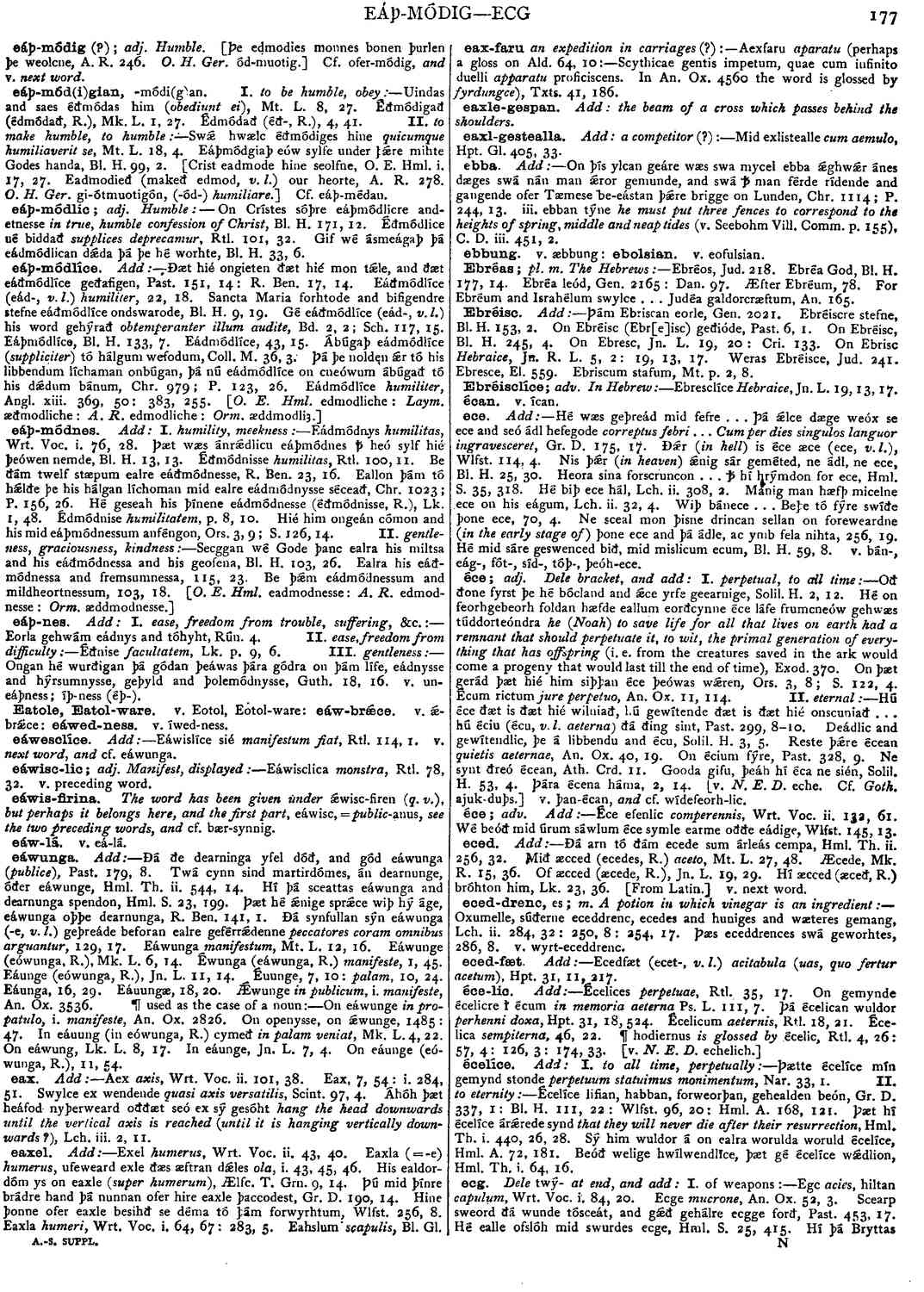éce
- adjective
-
Oð ðone fyrst þe hé bócland and ǽce yrfe geearnige,
- Solil. H. 2, 12.
-
Hé on feorhgebeorh foldan hæfde eallum eorðcynne éce láfe frumcneów gehwæs túddorteóndra
he (Noah) to save life for all that lives on earth had a remnant that should perpetuate it, to wit, the primal generation of everything that has offspring
(i. e. from the creatures saved in the ark would come a progeny that would last till the end of time),- Exod. 370.
-
On þæt gerád þæt hié him siþþan éce þeówas wǽren,
- Ors. 3, 8; S. 122, 4.
-
Écum rictum
jure perpetuo,
- An. Ox. 11, 114.
-
Hú éce ðæt is ðæt hié wilniað, hú gewítende ðæt is ðæt hié onscuniað . . . hú éciu (écu,
v. l. aeterna
) ðá ðing sint,- Past. 299, 8-10.
-
Deádlic and gewítendlic, þe á libbendu and écu,
- Solil. H. 3, 5.
-
Reste þǽre écean
quietis aeternae,
- An. Ox. 40, 19.
-
On écium fýre,
- Past. 328, 9.
-
Ne synt ðreó écean,
- Ath. Crd. 11.
-
Gooda gifu, þeáh hí éca ne sién,
- Solil. H. 53, 4.
-
Þára écena háma,
- 2, 14.
Bosworth, Joseph. “éce.” In An Anglo-Saxon Dictionary Online, edited by Thomas Northcote Toller, Christ Sean, and Ondřej Tichy. Prague: Faculty of Arts, Charles University, 2014. https://bosworthtoller.com/43600.
Checked: 0